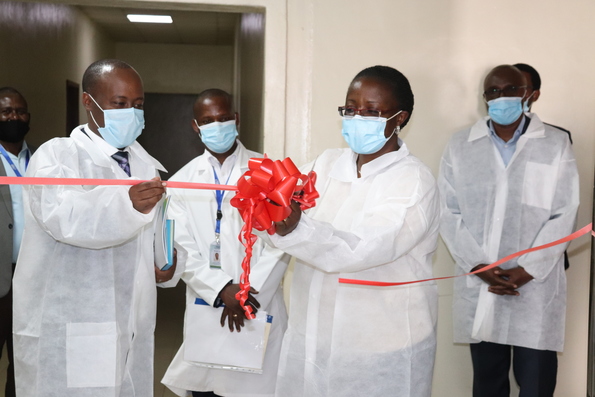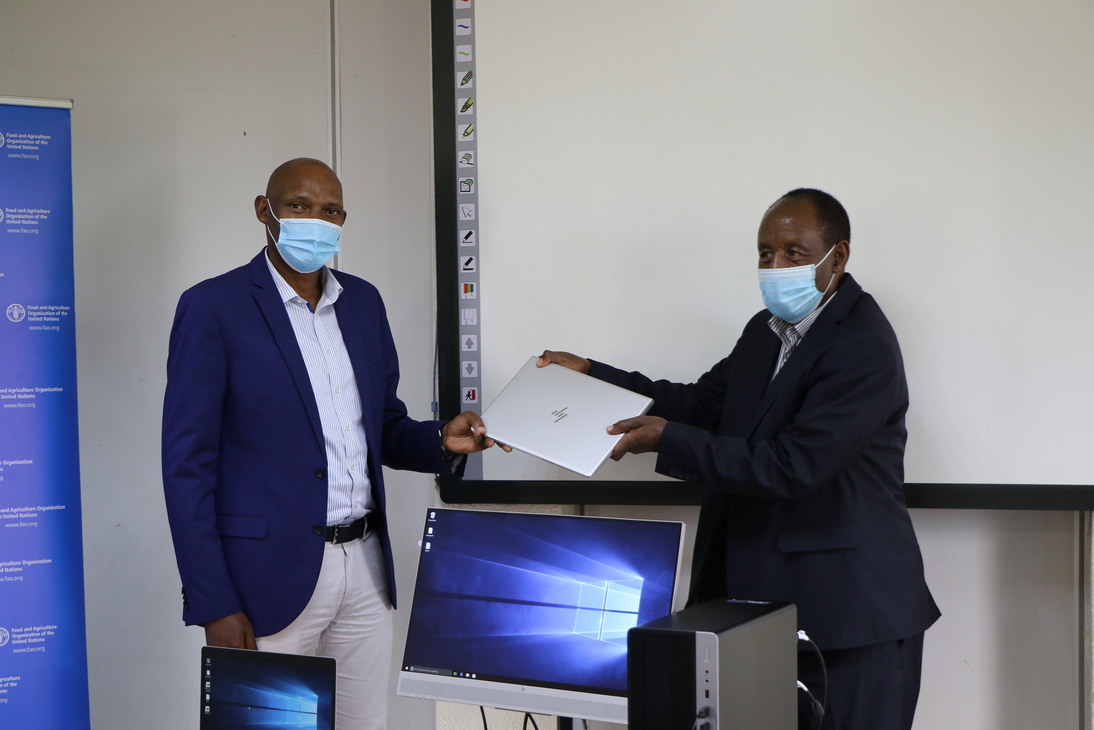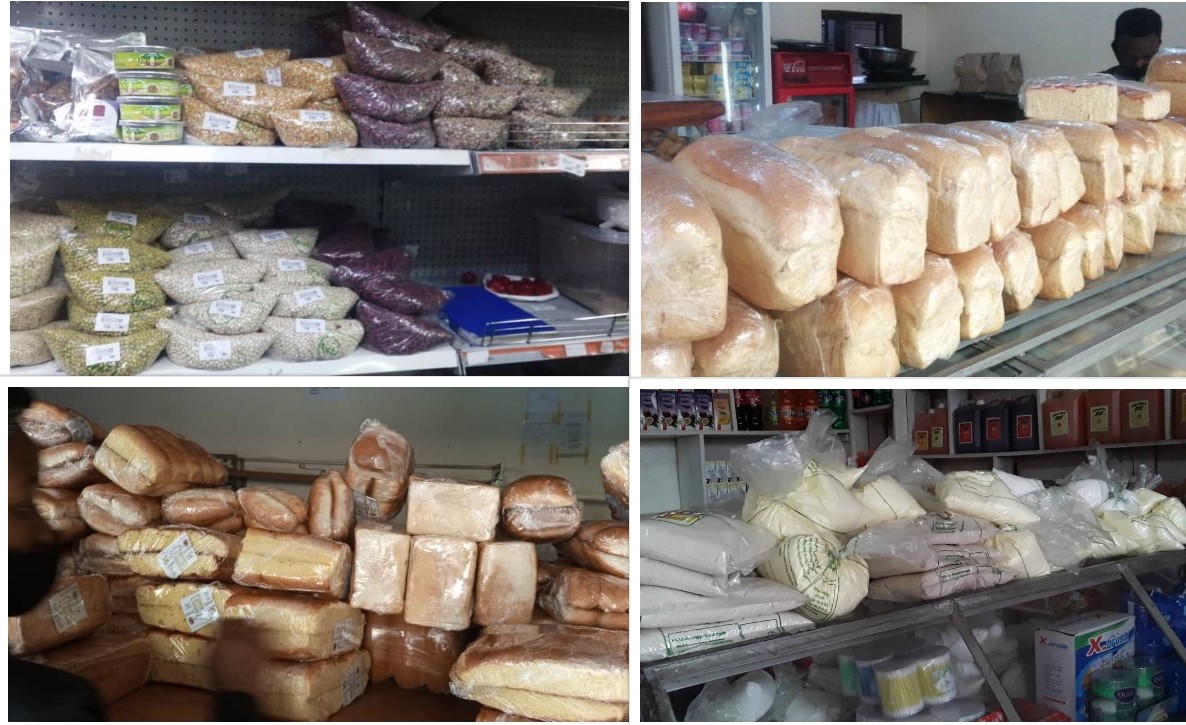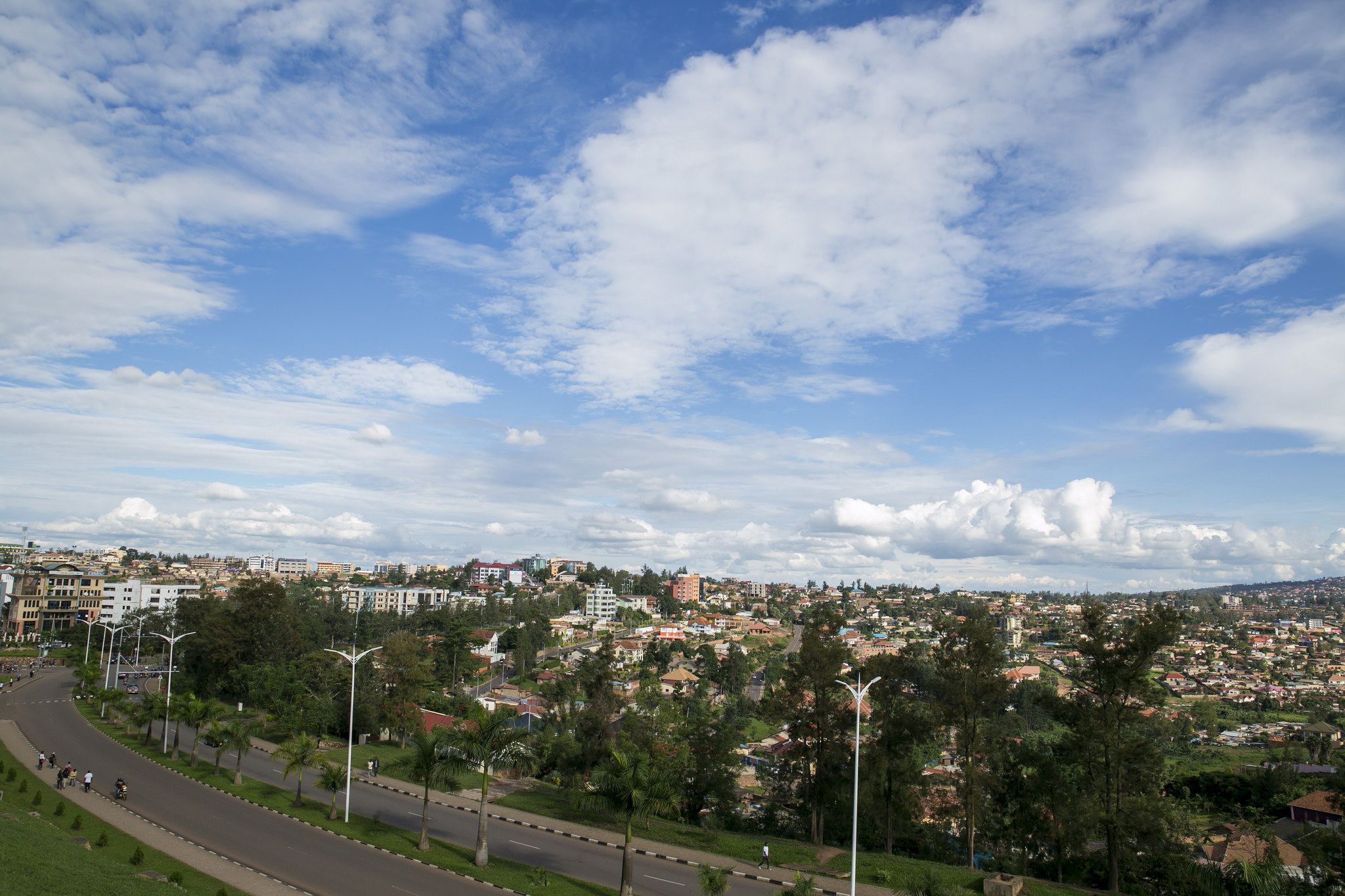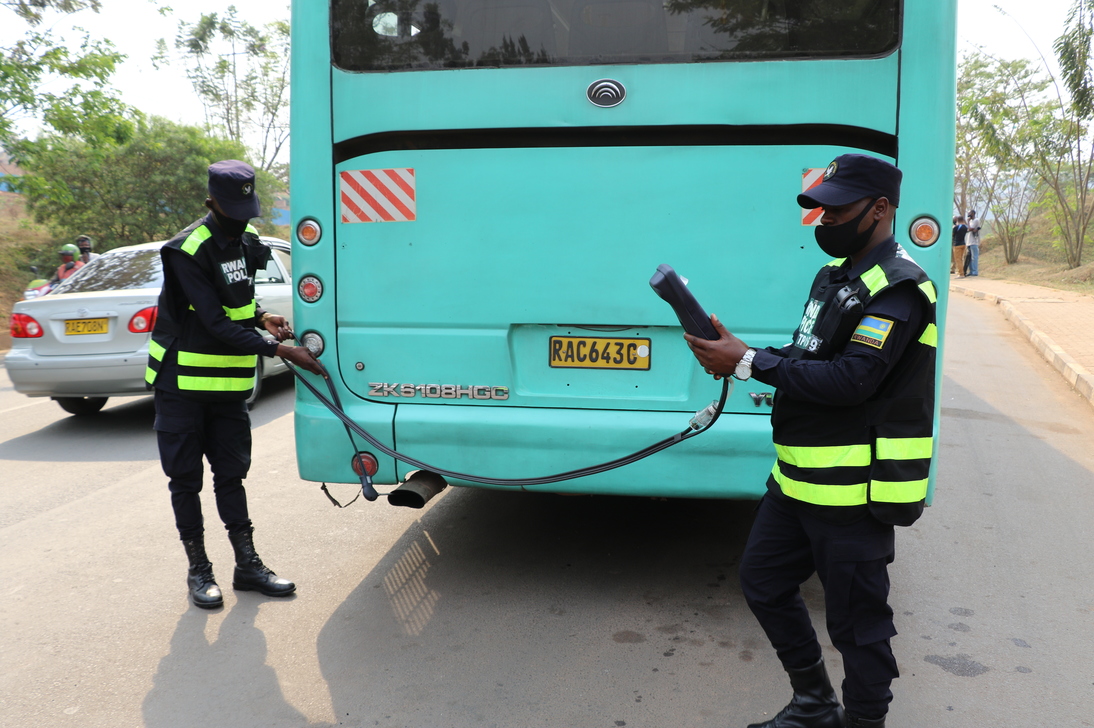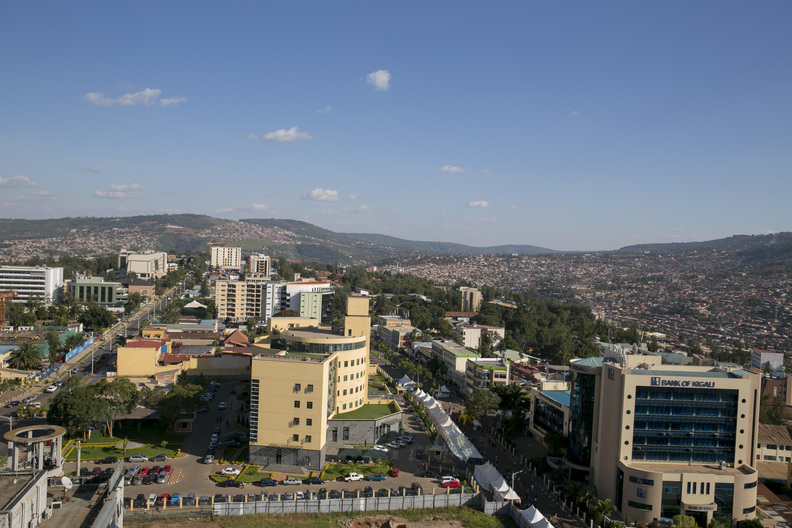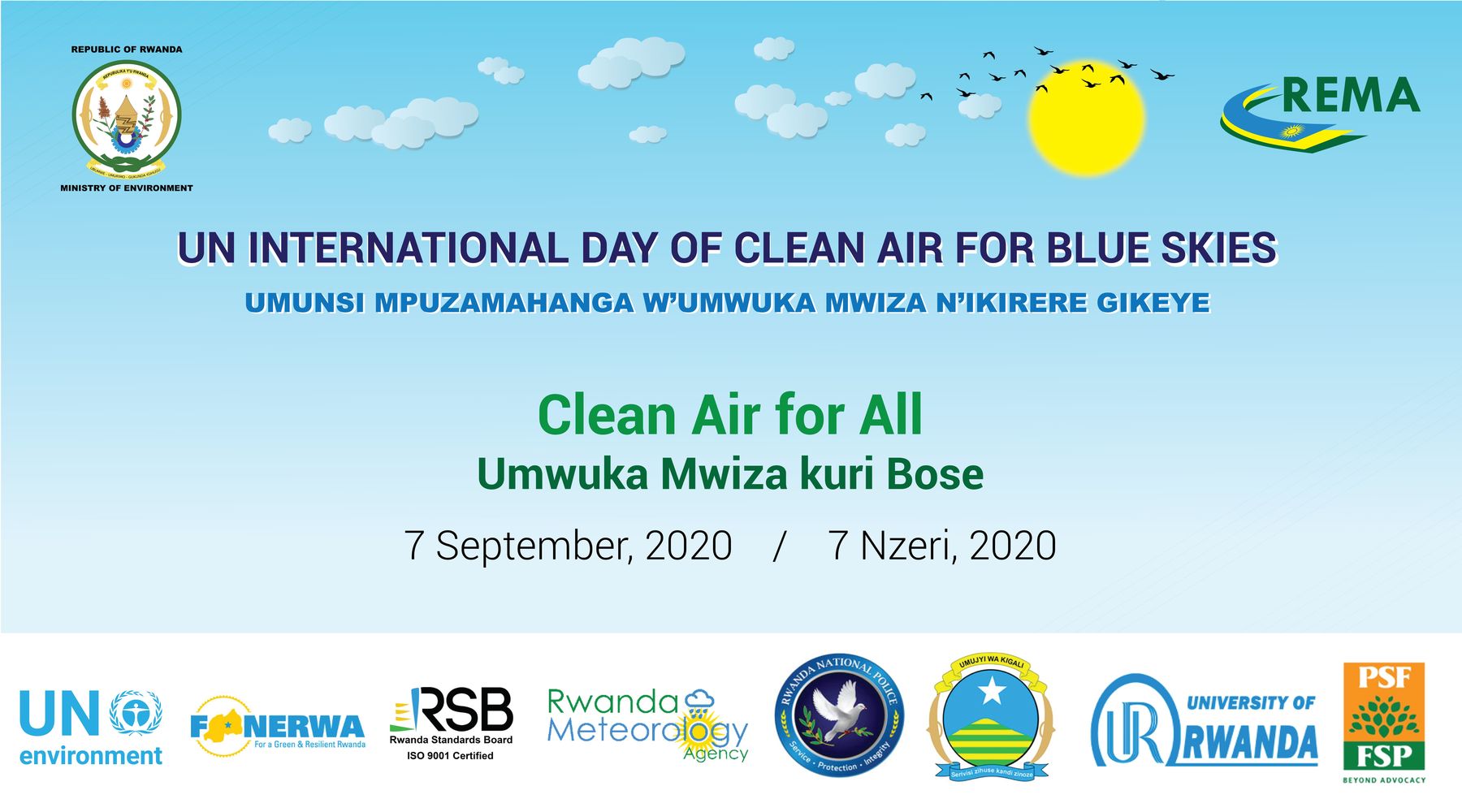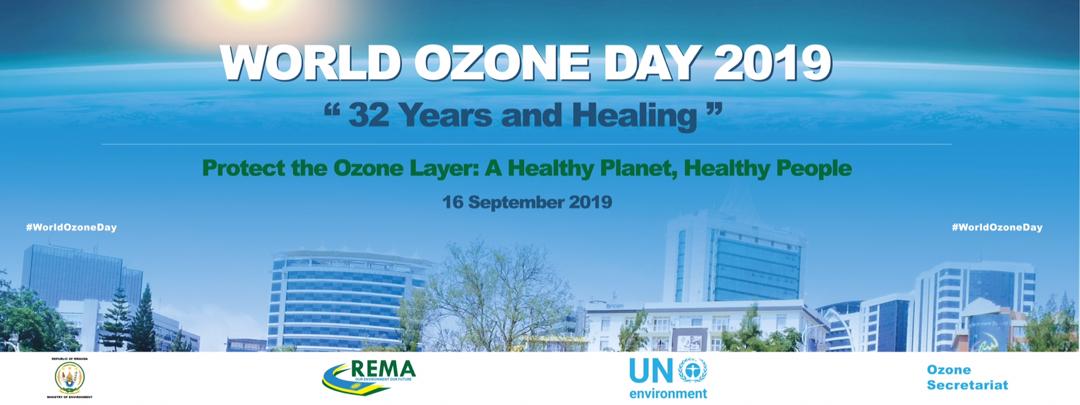
Rwanda joins the rest of the world to celebrate the World Ozone Day 2019
Rwanda is this coming Monday joining the rest of the world to celebrate the World Ozone Day celebrated under the theme “32 years and healing”. The day is celebrated annually on 16th September, proclaimed by the UN General Assembly to be the International Day for the Preservation of the Ozone Layer.
This acknowledges the date of 16 September when representatives from 24 countries met in Montreal-Canada and announced to the world that it was time to stop destroying the ozone layer (16September 1987).
The theme for this year celebrates over three decades of remarkable international cooperation to protect the ozone layer and the climate under the Montreal Protocol. It reminds us that we must keep up the momentum to ensure healthy people and a healthy planet.
For Rwanda, by celebrating the World Ozone Day, the country celebrates its success with its support to the Montreal Protocol especially the Kigali Amendment to the Montreal Protocol, which entered into force on 1 January 2019. Currently, more than 78 countries have already ratified the Kigali Amendment to phase out hydrofluorocarbons (HFCs) that are most potential climate-warming gases. It is important to note that the phasing down of HFCs, will avoid up to 0.4°C of global temperature rise by the end of the century.
Causes and Effects of Ozone Layer depletion
The Ozone layer depletion is normally caused by human activities and human made chemicals especially manufactured halocarbon refrigerants, solvents, propellants and foam-blowing agents that bring chlorine and bromineto the stratosphere, causing then the depletion of ozone layer.
The Ozone layer depleting substances include Chlorofluorocarbons (CFCs), Hydrochlorofluorocarbons (HCFCs), Hydrobromofluorocarbons (HBFCs), Halons, Methyl bromideandCarbon tetrachloride. Those substances have been used as refrigerants in air conditioners, refrigeration equipment, cold rooms and other cooling systems.
The effects of Ozone layer depletion of on human beings include skin cancer, increase in risk of cataract, weakened human immune systems , DNA damage as well as Lung Diseases since Ultraviolet radiations can disturb biomolecules such as lipids, proteins and Nucleic acids.
Effects of ozone layer depletion can also lead to food shortage as Ultraviolet radiations disturb developmental and physiological processes that decrease the productivity of crops.
Ultraviolet radiation also affects wildlife as well since ozone depletion may lead to a loss of plant species and reduce global food supply.
To contribute to the protection of Ozone layer, people are encouraged to use natural gases, timely maintain their cooling equipment such as air conditioners, refrigerators and other heating and cooling systems and also avoid usage gases and chemical products that are dangerous to the ozone layer.
Topics
More posts
Rwanda launches the first ever cook stove testing laboratory
The Gouvernement of Rwanda has launched a cook stove testing laboratory which will also be used for testing of other aspects of renewable energies.
T…
REMA receives computing equipment provided by FAO to enhance Greenhouse Gases inventory
Rwanda Environment Management Authority (REMA) has received computing equipment that will be used for enhancing the Greenhouse Gases (GHG) national…
Kurengera akayunguruzo k’imirasire y’izuba biri mu nyungu za buri wese
U Rwanda rwifatanyije n’isi mu kwizihiza umunsi mpuzamahanga wo kurengera akayunguruzo k’imirasire y’izuba wizihijwe tariki 16 Nzeri 2020…
REMA yongeye kuburira abagikoresha amasashi n’ibikoresho bya pulasitiki bikoreshwa inshuro imwe
Ikigo cy’igihugu cyo kubungabunga ibidukikije REMA kuri uyu wakane tariki 10 Nzeri 2020 cyatangiye igenzura ku iyubahirizwa ry’itegeko ribuza ikorwa,…
Clean skies, healthy people...
Rwanda has joined the rest of the world to mark the first-ever International Day of Clean Air for blue skies. The day calls upon all of us, from…
Abafite imodoka barasabwa kuzirinda gusohora imyotsi ihumanya umwuka
Ikigo cy’igihugu cyo kubungabunga ibidukikije REMA ku bufatanye na Polisi y’u Rwanda, kuri uyu wagatandatu tariki 05/09/2020 batangiye igikorwa cyo…
International Day of Clean Air for Blue Skies: Rwanda’s commitment to Preserving Air Quality and Fighting Air Pollution
Rwanda recognizes air pollution in cities and at national level as a serious environmental and health threat. According to estimates from the World…
Abanyarwanda barakangurirwa kwirinda ibyahumanya umwuka n’ikirere
Kigali, Tariki 04 Nzeri 2020 – Uyu mwaka u Rwanda ruzifatanya n’isi kwizihiza ku nshuro ya mbere umunsi mpuzamahanga w’Umwuka Mwiza n’ Ikirere Gikeye.…
Postgraduate students funded by REMA successfully completed their research theses
Sixteen students from the University of Rwanda who were funded by the Rwanda Environment Management (REMA) under the Landscape Approach to Forest…
